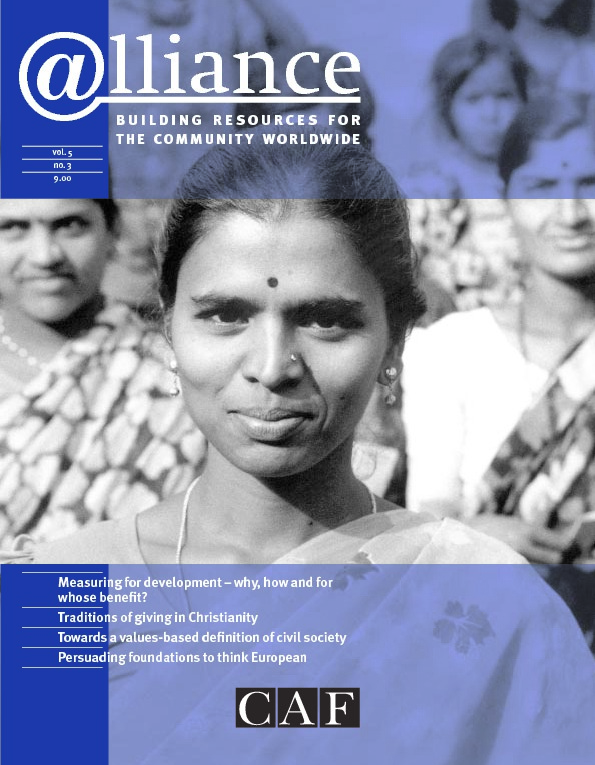ActionAid’s new strategy document for 1999–2003, Fighting Poverty Together, emphasizes the need to address the fundamental causes of powerlessness. The new strategy has necessitated significant organizational change, including the revision of ActionAid’s internal planning and reporting system, changing it from a system that gives dominance to upward accountability to one that also requires accountability to the poor and marginalized groups with whom ActionAid works.
Fighting Poverty Together takes ActionAid in a new direction. The first strategic objective is to ‘strengthen the capacity and power of poor women, men, girls and boys at grassroots level to claim and achieve their basic rights’. Implementing such an ambitious strategy necessarily involves an attempt to bring internal processes and systems in line with organizational objectives.
From upward reporting …
ActionAid’s internal planning and reporting system formerly emphasized upward reporting, accountability to donors and sponsors, and an over-reliance on ActionAid’s own interpretation of change. Large, wordy reports tended to describe project activities in great detail while giving less emphasis to the wider outcomes, impacts and changes perceived by the groups of people with whom ActionAid and ActionAid’s partners work at different levels. The tyranny of written English, the perceived pressure of detailing variances between planned and actual activities, and the inordinate amount of time spent on writing reports have, to some extent, stifled creative understanding of development processes. Clearly changes needed to be made.
… to downward accountability
The new system (the ActionAid Accountability Learning and Planning System – ALPs) puts greater emphasis on downward accountability to the poor and marginalized people with whom we work. It cuts down on reporting requirements for country programmes and emphasizes annual processes of participatory review and reflection at all levels with stakeholder groups – processes which should be guided not by reporting requirements but by a real desire to understand how and whether interventions are supporting complex development processes that contribute to people’s ability to have more control over their lives.
ALPs encourages staff and partners to validate participatory processes by writing up diagrams, matrixes and visual representations of the ideas expressed by those taking part. It also aims to promote creative ways of understanding change processes, for example through participatory video and oral history. In time such processes should open up the space for more creative and hopefully more honest assessment of change.
Changes to any system create tradeoffs. One immediate difficulty that ActionAid will face is the need to produce additional reports for donors. Some major institutional donors still, unfortunately, require reporting against ‘logical frameworks’, which inevitably constrains analysis and reinforces a ‘project’ perspective. As one Kenyan development worker pointed out some years ago, ‘The important issues always seem to fall between the boxes.’
Rosalind David is Head of Impact Assessment at ActionAid. She can be contacted by email at RDavid@actionaid.org.uk






Comments (0)